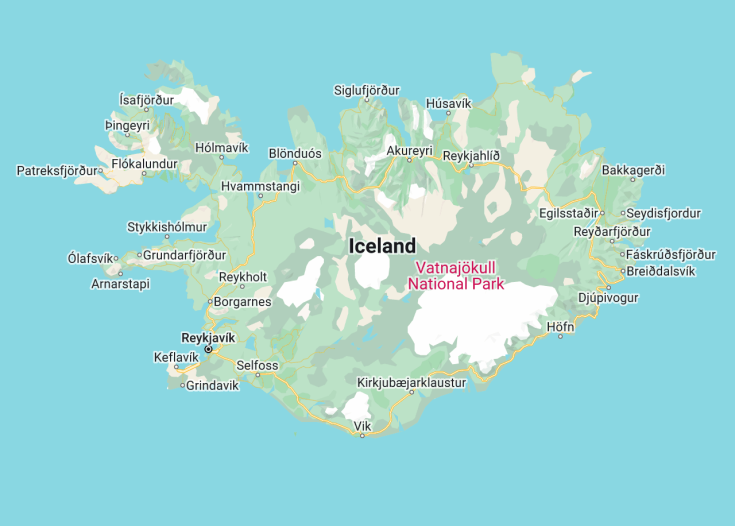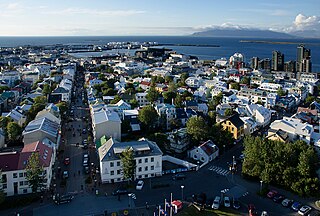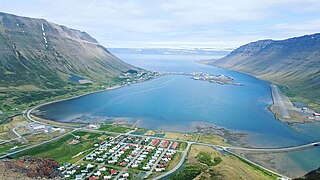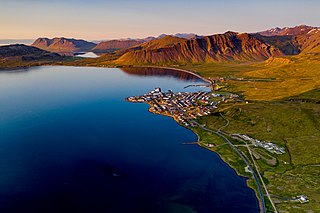Iceland is a stunning Nordic island country known for its breathtaking natural landscapes and unique geological features. From majestic waterfalls and icy glaciers to active volcanoes and soothing hot springs, Iceland offers a diverse range of experiences for travelers seeking adventure and tranquility. Discover the famous Golden Circle, explore the dramatic landscapes of Vatnajökull National Park, or relax in the soothing waters of the Blue Lagoon. With its friendly locals, rich cultural heritage, and stunning natural beauty, Iceland is an ideal destination for those seeking an unforgettable travel experience.
Make sure to pack warm and waterproof clothing, as the weather in Iceland can be unpredictable and change quickly.
Don’t miss the chance to witness the mesmerizing Northern Lights. Head to remote areas with minimal light pollution for the best views.
Top destinations in Iceland
Iceland: The Land of Fire and Ice
| Capital | Reykjavik |
| Time in Iceland | GMT |
| Language spoken | Icelandic |
| Population | Approximately 356,991 (World Bank, 2021) |
| Religion | Lutheran (87.1%) Catholic (2.3%) Reykjavíkurstaðarbót (0.3%) Other (10.3%) |
| Currency | Icelandic króna (ISK) |
| Airports | Keflavík International Airport Reykjavík Airport Akureyri Airport |
Welcome to Iceland, the land of fire and ice. With its breathtaking landscapes, rich cultural heritage, and friendly locals, Iceland is a destination like no other. This Nordic island nation, located in the North Atlantic Ocean, is known for its stunning natural beauty, including volcanoes, geothermal springs, glaciers, and majestic waterfalls. Whether you’re seeking outdoor adventures or a unique cultural experience, Iceland has something for everyone.
Where is Iceland located?
Iceland is located at the juncture of the North Atlantic and Arctic Oceans. It is situated northwest of Scotland and rests just below the Arctic Circle. The country covers an area of approximately 39,769 square miles (103,000 square kilometers) and is the westernmost country in Europe.
What is Iceland famous for?
Iceland is famous for its stunning natural landscapes and geological wonders. One of the country’s most iconic attractions is the Golden Circle, a popular tourist route that includes the Þingvellir National Park, the Geysir Geothermal Area, and the Gullfoss Waterfall. Iceland is also renowned for its geothermal hot springs, such as the Blue Lagoon, where visitors can relax and soak in the mineral-rich waters. Additionally, Iceland is known for its vibrant music scene, with many talented musicians and bands originating from the country.
History
The history of Iceland dates back to ancient times, with evidence of human settlements on the island dating as far back as the 9th century. The first permanent settler was Ingólfur Arnarson, who established a settlement in Reykjavik around the year 874. This marked the foundation of the city and the beginning of organized human civilization in Iceland.
9th – 14th century
During the medieval period, Iceland was characterized by a strong Norse influence. The island was ruled by chieftains known as goðar, who governed independent territories. The settlement period was followed by a period of relative peace and prosperity, with a well-organized agricultural society and a growing population.
14th – 18th century
In the 14th century, Iceland came under Danish rule. This marked a significant shift in power and governance, as the island became a colony of Denmark. The Danish rule brought both benefits and challenges to Iceland, including the introduction of Lutheranism and the reformation of the Icelandic church.
During the 17th and 18th centuries, Iceland faced various hardships, including natural disasters and economic crises. The island experienced several volcanic eruptions, resulting in the destruction of farmland and the loss of livestock. These events, combined with unfavorable economic conditions, led to widespread poverty and emigration.
19th – 20th century
The 19th century marked a period of significant change and cultural revival in Iceland. The fight for independence from Denmark gained momentum, and in 1904, Iceland was granted home rule. However, it wasn’t until 1944 that Iceland officially became an independent republic.
Modern Iceland has seen rapid economic development and a thriving tourism industry. The country’s unique landscapes, including geysers, waterfalls, and glaciers, attract visitors from around the world. Iceland has also gained international recognition for its progressive environmental policies and commitment to renewable energy sources.
Visit Iceland
What to see and do in Iceland
When visiting Iceland, there is a wide array of attractions and activities to explore. Here are some must-see highlights:
- Visit the Blue Lagoon, a geothermal spa known for its mineral-rich waters.
- Explore the Golden Circle, which includes the Þingvellir National Park, the Gullfoss waterfall, and the Geysir geothermal area.
- Marvel at the beauty of the Jökulsárlón Glacier Lagoon, where you can see icebergs floating in a picturesque setting.
- Take a glacier hike or ice cave tour to experience Iceland’s stunning ice formations up close.
- Go whale watching in the waters surrounding Iceland, where you can spot various species of whales and dolphins.
- Visit the vibrant capital city of Reykjavik, known for its unique architecture, cultural events, and lively nightlife.
- Embark on a road trip along the Ring Road, which offers breathtaking views of Iceland’s diverse landscapes.
Events in Iceland
Iceland hosts a variety of events throughout the year, catering to different interests and seasons. Some notable events include:
- The Reykjavik Arts Festival (May): A multidisciplinary arts festival showcasing local and international talent.
- Iceland Airwaves (November): A music festival featuring both established and up-and-coming artists from Iceland and abroad.
- The Winter Lights Festival (February): A celebration of the winter season with various cultural and outdoor events.
- Pride Parade (August): A lively and colorful event celebrating LGBTQ+ rights and equality.
- The Reykjavik International Film Festival (September): A showcase of new and innovative films from around the world.
Best time to visit Iceland
The best time to visit Iceland largely depends on personal preferences and the activities you wish to engage in. However, the summer months of June, July, and August are generally considered the peak tourist season, as the weather is mild and outdoor activities are more accessible.
For those interested in witnessing the Northern Lights, the winter months from September to March offer the best chance to see this natural phenomenon. However, keep in mind that the weather can be unpredictable and road conditions may be challenging.
Spring and autumn can be great times to visit as well, offering a mix of favorable weather conditions, fewer crowds, and beautiful landscapes as the seasons transition.
Is Iceland worth visiting?
Without a doubt, Iceland is worth visiting for its unparalleled natural beauty and unique experiences. The country offers stunning landscapes, from majestic waterfalls to otherworldly lava fields, along with opportunities for adventure and relaxation.
However, it’s important to note that Iceland can be an expensive destination, especially when it comes to accommodation and dining. Additionally, the weather can be unpredictable and harsh at times, requiring travelers to come prepared.
For those seeking a truly memorable and awe-inspiring travel experience, Iceland’s raw and untouched landscapes provide an incredible backdrop for exploration and discovery. Whether you are interested in outdoor adventures, cultural events, or simply immersing yourself in the country’s rich history, Iceland offers something for everyone.


















